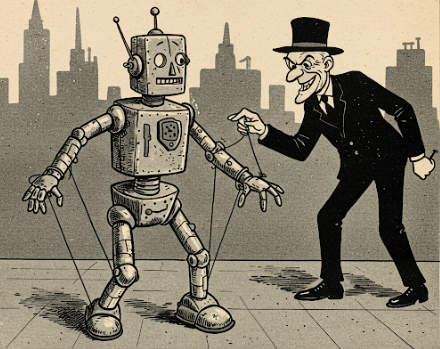· 4 min read
The Case for Personal Data Ownership
Why Your Digital Footprint Should Belong to You... and why pretty much every tool out there will go the other way - unless...

As we plunge deeper into the digital age, the question of who owns our data has become one of the most important issues we face. From our online habits and social interactions to our shopping preferences, our personal data is invaluable. Yet, who truly benefits from it? Spoiler: it’s not us.
The Current Landscape of Data Ownership
Today, our data is treated as a commodity, collected and monetized by corporations. Every search query, purchase, and click builds a profile that companies use to sell ads, refine products, and—let’s be honest—make money. And while this data belongs to us in the most personal sense, we’re often sidelined when it comes to deciding how it’s used or who profits from it.
Take 23andMe as a prime example. Once a leader in the genetic testing market, it’s now facing potential failure—and with that comes the risk of being bought, along with all the DNA data it’s collected. This isn’t just about a breach (like the one in 2023), but the broader problem of your data potentially being sold to “who knows where, doing who knows what.” You can read more about the breach and the concerns surrounding it here.
NOTE: It’s not sold off just yet, but it’s very concerning regardless of the outcome. Even the best digital security can come undone by nontechnical factors you might not consider when evaluating a company’s value proposition. For more information, check out this article.
If your data were truly yours—readable, accessible, and shared only with your explicit consent (yes, a tall order)—this wouldn’t be the problem it is today. Instead, companies like 23andMe treat our personal information as an asset to be bundled and sold, without us having any real control over it.
The Vision: Personal Data Wallets
Now, imagine if your data were as portable and personal as your bank account. A personal data wallet—a secure, digital vault where you could store and manage all your information. You would decide who gets access to it, under what conditions, and for how long. Want to share your data in exchange for discounts or rewards? You could do that. Want to deny access to a company profiting off you without your consent? You’d have that power, too.
This would turn the current model on its head. Instead of data being a one-way flow from us to corporations, we’d control the flow, choosing when and how to share it—finally reaping the benefits directly.
Could Blockchain Be the Answer?
One promising solution for this vision is blockchain technology. A decentralized ledger could allow individuals to maintain control of their data, choosing when and with whom to share it without a central authority hoarding it for profit. Blockchain could offer transparency, security, and—most importantly—ownership.
Users could selectively grant access to their data, benefiting from personalized services without surrendering privacy. This would be a seismic shift in how we interact with digital services, putting the power back where it belongs—with us.
But—and it’s a big but—while blockchain offers potential, I’m not entirely sold. The tech is slow, its reputation for scams is a big red flag, and its governance feels chaotic at best. Yes, blockchain could redefine data privacy, but will it do so smoothly? Color me skeptical.
Is Worldcoin Addressing These Issues?
Interestingly, Sam Altman’s Worldcoin project seems to understand the magnitude of this problem space and is actively exploring solutions. While primarily focused on security at this stage, Worldcoin is working on creating a system for decentralized identity verification. The project’s goal is to use biometrics to establish unique identities that can verify access without sacrificing privacy—a step towards resolving some of the issues surrounding data ownership and misuse.
Although it’s still early days for Worldcoin, projects like this show that there’s growing awareness of the need to rethink how personal data is managed and secured. If executed well, it could offer an infrastructure where personal data is treated more responsibly, with user-centric controls in place. It’s a sign that some major players are starting to look at the underlying issues—though whether it will fully solve the problem remains to be seen.
Where Do We Go from Here?
So, where does that leave us? The fight for personal data ownership is just getting started, but it’s a fight worth having. If we want control over our digital lives, we must demand systems that prioritize our ownership and our privacy.
And no, it doesn’t have to be blockchain. We need more robust conversations and creative solutions, not just jumping on the next tech bandwagon. The future could follow the current trajectory—where our data is endlessly commodified—or we could push for something better: a world where we own and manage our own data.
The choice is ours to make. Who’s with me in this quest for data empowerment?


